Menu
Elton’s 1979 Tour of the USSR – A Look Back
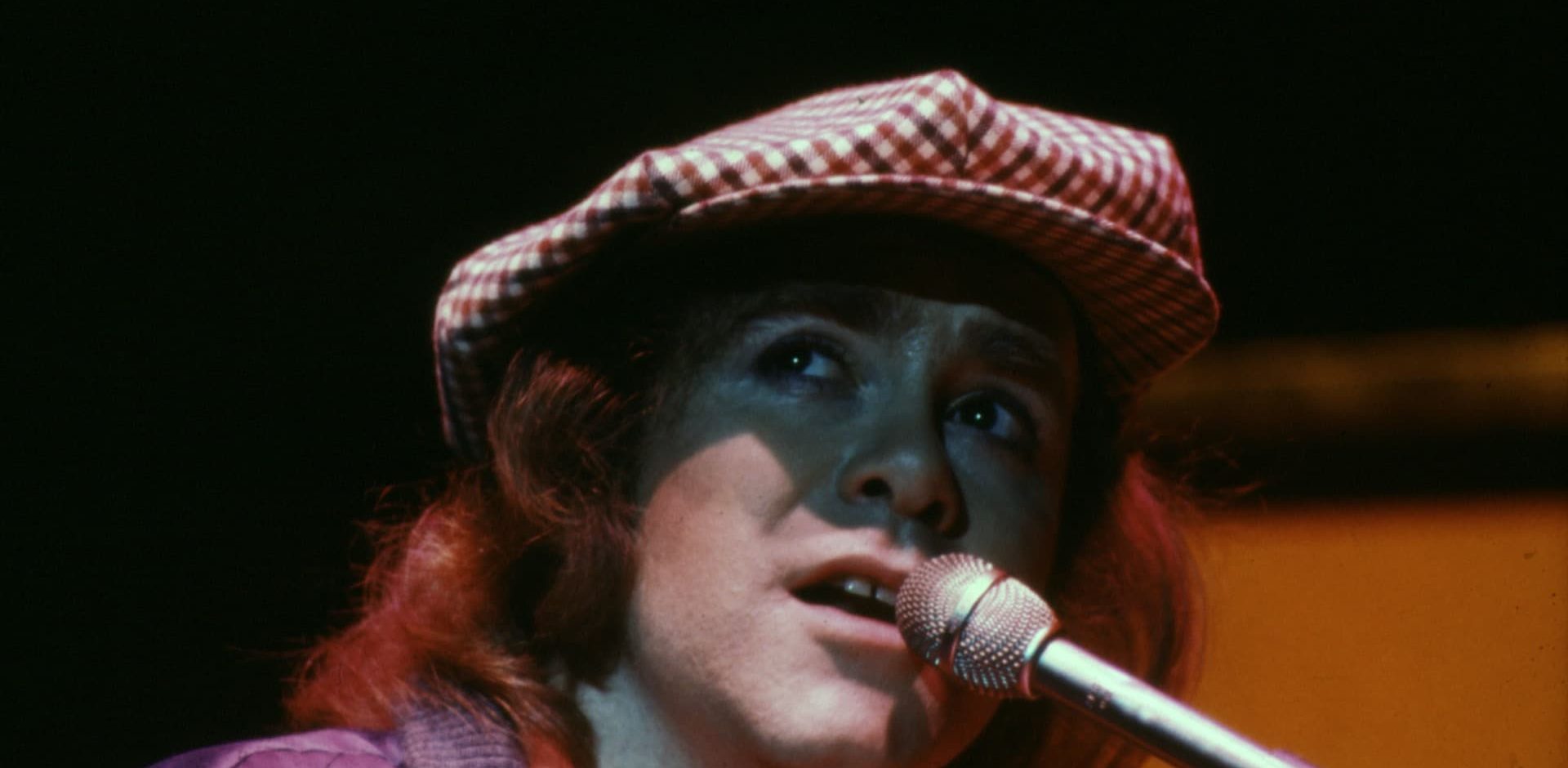
40 years ago next month, Elton John and percussionist Ray Cooper took their four-month-long ‘A Single Man Tour’ to the Union of Soviet Socialist Republics.
Only two other Western popular acts had performed in the Communist country before, Cliff Richard and Boney M, but as one newspaper writer said at the time, those prior musicians “came and performed. Elton came and conquered.”
By John F. Higgins
When we originally thought of doing a tour we said, 'Let’s go to places that we haven’t been to before.' Places, for example, that I wasn’t very popular in, like Israel, Switzerland, France… I thought [Russia] would be absolutely out of the question, but it all went very, very smoothly.
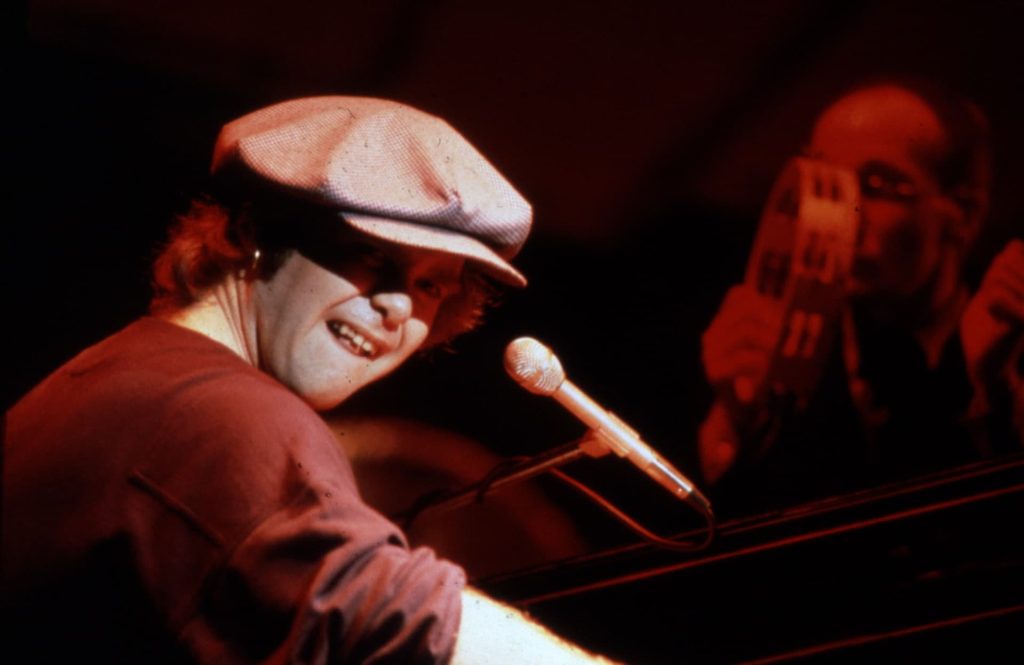
Elton John and Ray Cooper performing on stage in the USSR – May 1979.
At the time of Elton’s ground-breaking visit from May 21-30, 1979, music fans behind the Iron Curtain could only hear his recordings on high-priced cassettes bought on the black market, some of which cost as much as a third of the average citizen’s monthly salary, or on Voice of America. None of Elton’s records were available for sale in the Soviet Union, a fact that stunned the artist upon his arrival.
Fans hoping to see one of his eight concerts (four in Leningrad, four in Moscow) first of all had to learn of them; the Russian media did not announce Elton’s visit in print and by the time state-sponsored radio had revealed that the concerts were officially going on sale in April, most of the best seats had already been snapped up by high-ranking Communist party officials. What remained for the general population were sold through a complicated queuing system at the box office, leaving a great many true fans disappointed, sometimes after days of waiting.
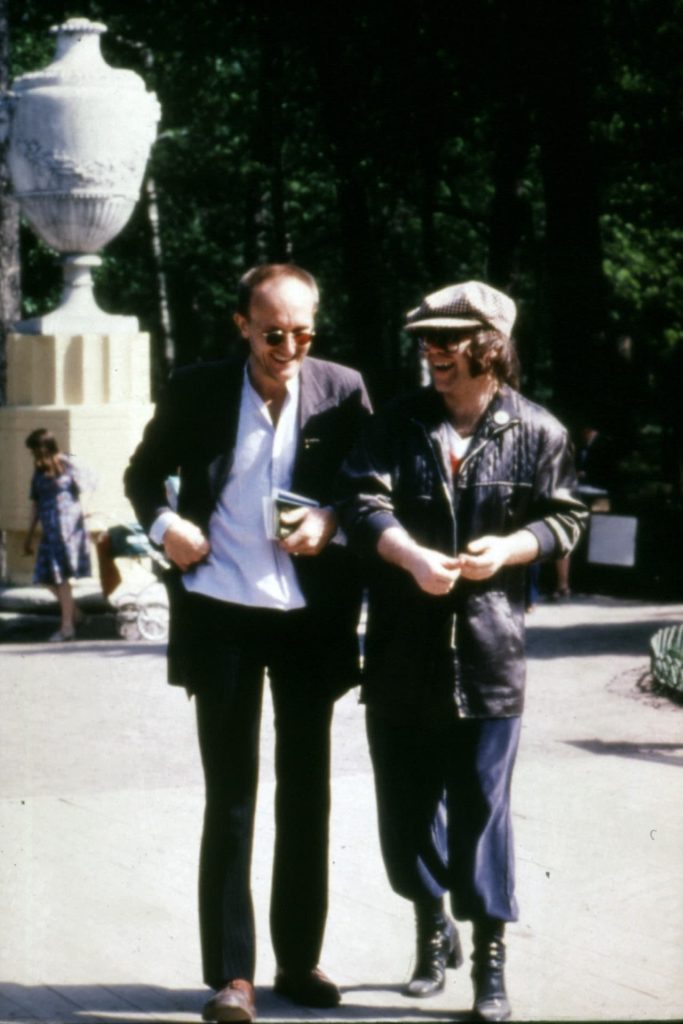
Ray and Elton sightseeing in Moscow.
In an excursion five months in the planning, Elton and his entourage (his mother, step-father, and various journalists – Los Angeles Times critic Robert Hilburn, whose 1970 review helped launch Elton’s career, among them) arrived in Moscow early in the morning of May 20 where they were greeted by a number of handlers and Russian translators, a handful of excited fans bearing gifts, and one of the hottest summers in memory, with temperatures ranging above 90°F some days. (Air conditioning was an unknown commodity in the Russian summer of 1979.) Following a press conference in the Amusement Palace and a brief stay at the Metropole Hotel, they took the 8½-hour “Red Arrow” train to Leningrad (now St. Petersburg) to begin the tour proper.
While in Leningrad, Elton and Ray were urged to perform at L’Europe restaurant at the Belmond Grand Hotel Europe. Joined by Elton’s sound tech Clive Franks on bass and Lem Lubin on guitar, the duo sat in for the house band and gave a rousing rendition of the Motown classic I Heard It Through The Grapevine to a gathering crowd of curious onlookers.
To say the 32-year-old rock star was a tad nervous would be an understatement. Whilst being taught a few Russian phrases backstage to use during his concerts, Elton semi-jokingly inquired of the translator what was the word for “help”?
I was terrified before the first night. I felt nobody really knew me here and that it could all go terribly wrong. … I think we all felt up to the last minute that someone somewhere would give us a 'No'...or a 'Nyet!', as they say. [laughing] 'Bennie and the Nyets.'
The next evening (the Soviet concert promoter initially wanted Elton to start his concerts at 2 pm, but Elton would have none of that), Elton and Ray opened at the 3,800-seat Great October Hall in Leningrad with a 27-song setlist; 30, if you count the covers of Pinball Wizard, Get Back and Back In The U.S.S.R., a song the Soviet politburo expressly forbade Elton to play, included in the encore medleys.
Having discarded his trademark spectacles and lavish costumes for this tour, Elton had to rely purely on the songs, his playing, and his showmanship to win over the crowd. It took some effort for him to overcome the audience’s stoic reception…at first. The mood of “cautious restraint” began to shift after a pair of young female fans came down front early on in the show with a gift of roses and pieces of paper for Elton to sign. “I felt more at home”, said Elton afterwards.
As it had since the first concert on February 5th in Stockholm, Sweden, the show began with Elton solo at the piano for the first half, and then Ray slid into position behind his percussion rack for the remainder of the 2½ hour show.
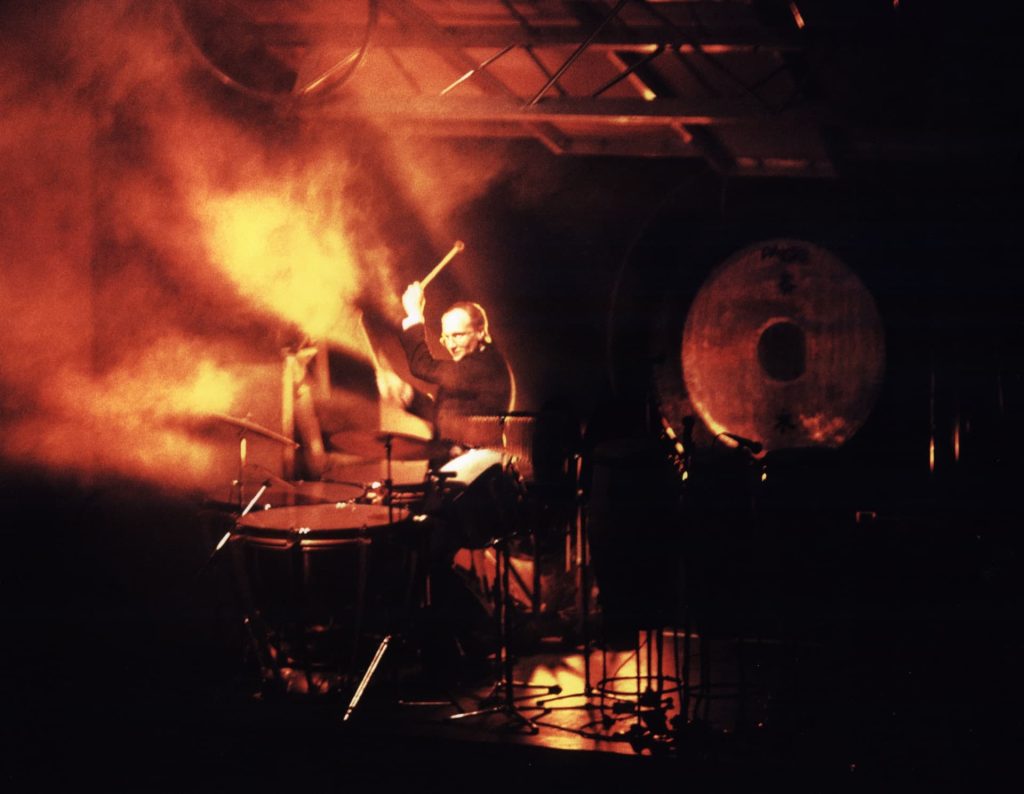
“Everybody’s already had an hour and fifteen or twenty minutes of Elton and his piano, and Bernie’s lyrics, and the songs, which is wonderful. And there’s almost the feeling that it’s either kind of time to go home, having been very much fulfilled by the evening’s entertainment, or to switch over channels, virtually. So, I come on in a puff of smoke and produce what is perhaps a little bit extra. It should be totally different.”
Ray Cooper, 1979
By the end of the show, and after some emphatic urging to clap during Bennie And The Jets and other up-tempo songs, the crowd was firmly in Elton and Ray’s hands. The pair understood the “newness” of the relationship between this particular audience and the entertainers, neither side really sure of how the other might react, and that added to the excitement for all involved. It had been years since Elton had performed in front of a crowd that was largely unaware of his repertoire, and he enjoyed the challenge immensely.
After the concert, the younger members of the audience continued to take the party outside as they gathered en masse in front of the venue, repeatedly chanting Elton’s name until he and Ray appeared in the dressing room window. Even the local police, there to keep the crowd at bay, turned around and watched the global superstar thrill the throng with waves and some tossed flowers.
Apparently, the Communist authorities viewed the situation, as Times of London reporter Michael Binyon put it at the time, “Like a sort of slight weakening, a sort of concession to Western culture – Western pop/rock tastes, which still isn’t fully accepted [in the USSR]”, and asked that the show be toned down a bit. Elton and Ray respectfully continued to give the audiences what they wanted, even if it wasn’t what they expected. The pianist even mixed some classical music segments by Russian composers into Bennie And The Jets in a sort of auditory attempt at Glasnost.
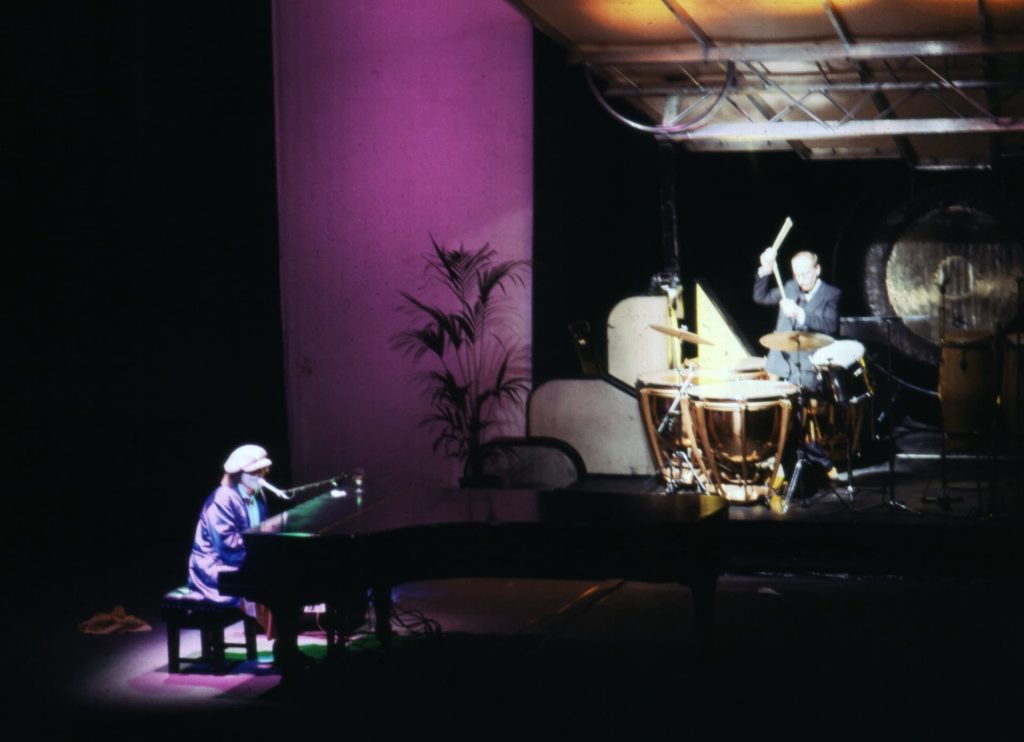
Elton and Ray performing 'Better Off Dead'.
A day or two after taking the midnight train from Leningrad back to Moscow, and checking back in to the Metropole Hotel, Elton struck a Cossack dance pose for photographers in front of the Kremlin and remarked how he and his party had been, “surprised at people’s friendliness and the beauty of what we’ve seen.” The group also attended a football match on May 26 (Moscow Dynamo over the Red Army side, 2-1), a reception at the British embassy, and a performance of Swan Lake by the Bolshoi Ballet.
In their spare time, Elton and Ray sat for a variety of on-camera interviews for Dick Clements and Ian La Frenais for the subsequent To Russia With Elton documentary. Elton also appeared on Moscow television for an interview with journalist Tatiana Korshilovoy and political commentator Anatoly Ovsyannikov, doing his level best to gracefully manage the translation delay and some of the questions themselves. At the end, he provided them with a performance of Candle In The Wind and I Need You To Turn To, the latter song notably not included on the current tour’s setlist.
Even while commenting on how the Russian capital was much more beautiful than other Communist bloc cities he had been to, Elton and his group privately noticed a change since coming to Moscow. They could tell they were being secretly monitored by the KGB and many of the British and American journalists felt uneasy in the shadow of Red Square. And the concert audiences seemed a bit more reserved – as if the already skewed ratio of Soviet party members-to-young fans had become more exaggerated since leaving the relatively more liberal Leningrad.
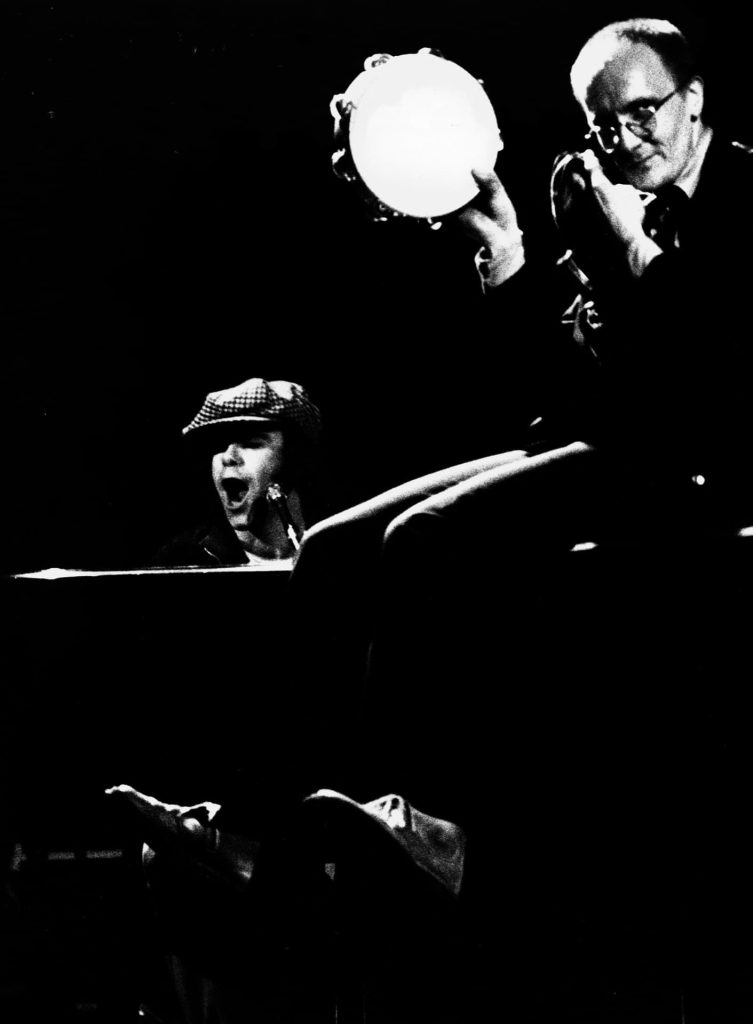
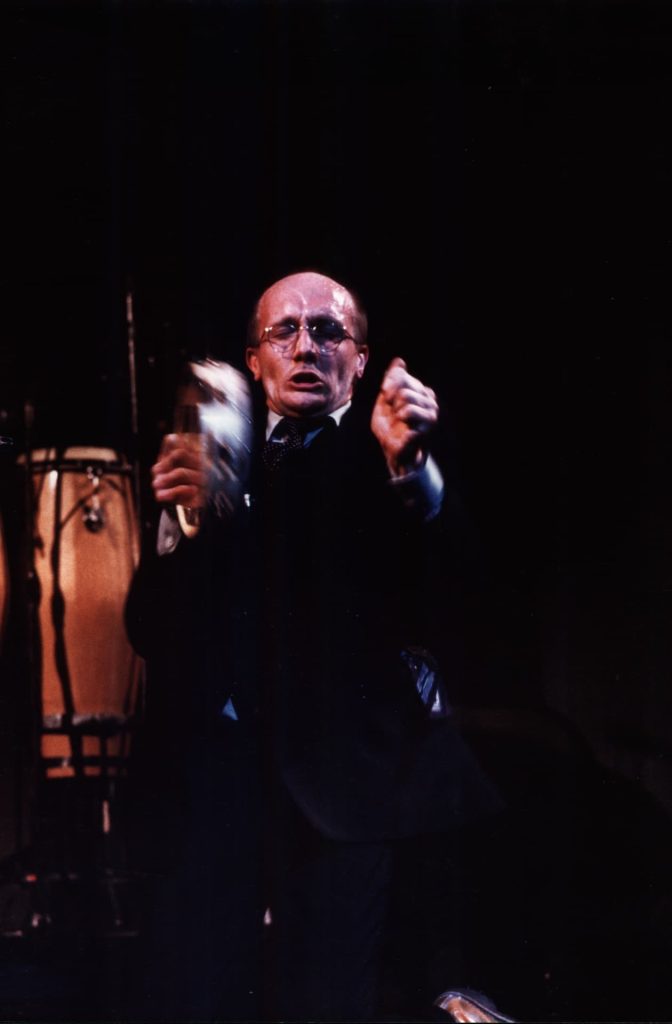
On May 28th, Elton and Ray gave their second concert at Rossiya Hall in Moscow, part of a massive hotel complex consisting of 6,000 guest rooms. The show was aired, not without some technical difficulties in the set-up, in stereo on BBC Radio. Both countries were keen to test out the broadcast lines as they readied for the 1980 Moscow Summer Olympics. Fans in the UK were able to enjoy the goings on starting at 5:30 pm Monday night from the comfort of their own homes, listening to Radio 1 announcer Andy Peebles introduce the festivities by commenting on how the venue reminded him, somewhat surprisingly, of London’s Royal Festival Hall.
The Moscow concerts went from strength to strength and as Elton prepared to leave Moscow for London, he spoke with some fans about their musical tastes and made a present of a video cassette of one of his favourite bands at the time, the Sex Pistols. He continued to receive gifts as he moved about in public, appreciating that even the smallest of them set their giver back a good amount due to the local economy. With every passing day, Elton’s appreciation of the young people who came up to him on the street grew and he left the country with a Russian spring in his step.
Watch Elton’s performance of ‘Saturday Night’s Alright (For Fighting)’ from Moscow, below:
I’m always making sweeping statements, but I can say it has been one of the best experiences of my life. It was one of the most memorable and happy tours I have been on. The last show was probably one of the best concerts I’ve ever given in my life.
It would take Elton another 16 years to make his return, four years after the fall of the Soviet Union. As of this article, Elton has performed in Russia 34 times. There he has made public statements about the duty he feels in appearing in nations whose governments may hold opinions that he does not agree with.
As he said in December 2013: “I love this country. I want to show them and the world that I care, and that I don’t believe in isolating people. Music is a very powerful thing. It brings people together, irrespective of their age, their race, their sexuality or their religion. It does not discriminate.”
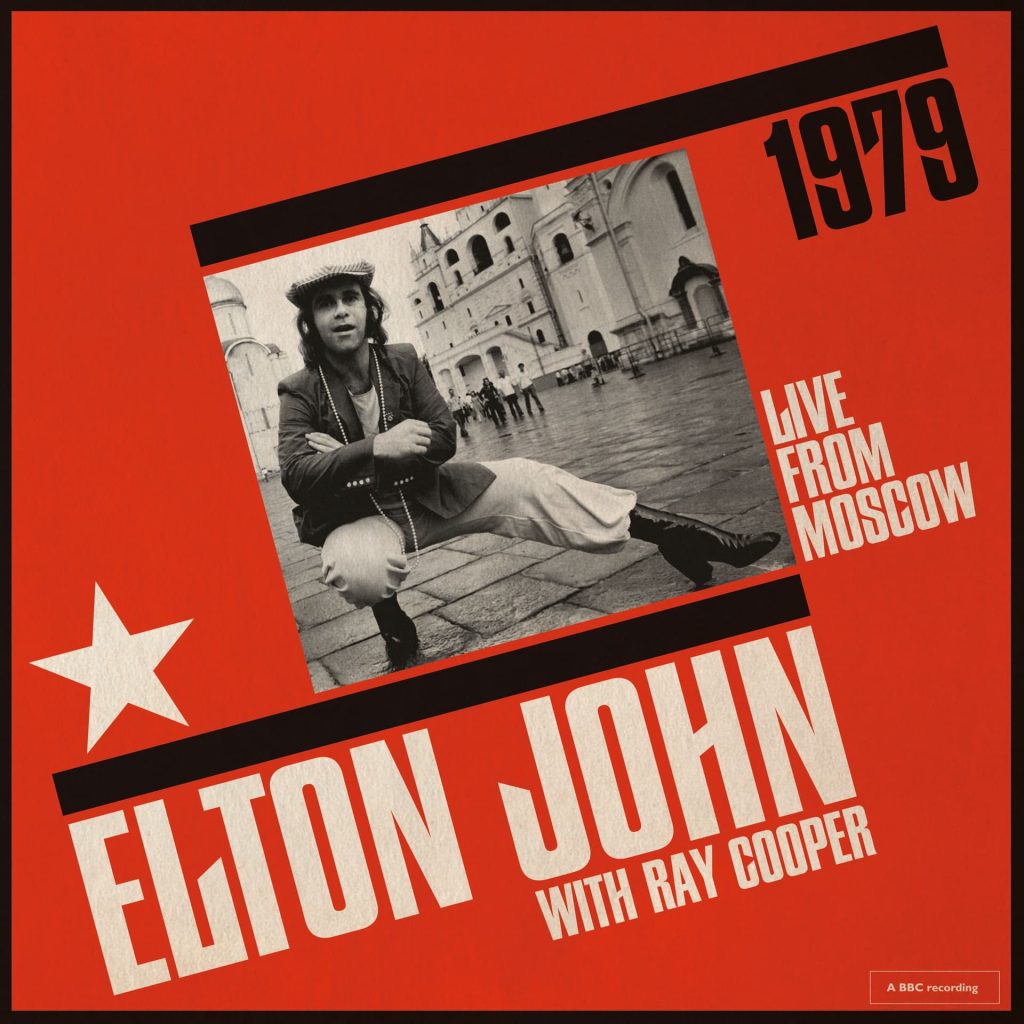
Live From Moscow is out now on 2LP vinyl, plus 2CD and digital formats via Universal Music. The show was broadcast by BBC Radio 1 in 1979 and the audio has been remastered by Bob Ludwig in 2019 from the original BBC analogue tapes. This general release follows an immediately sold‐out limited pressing for Record Store Day 2019.
